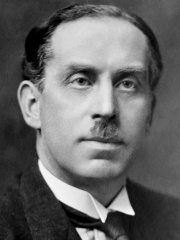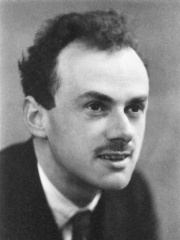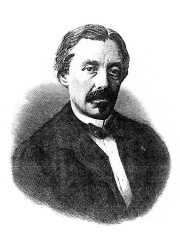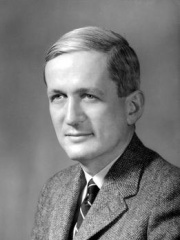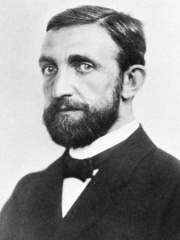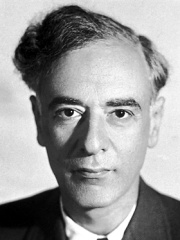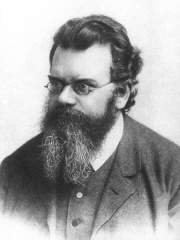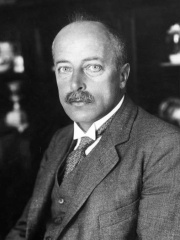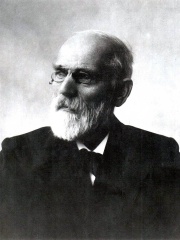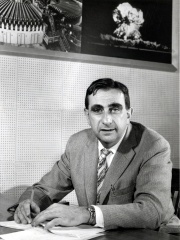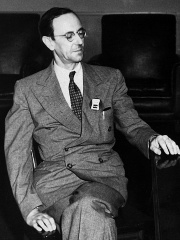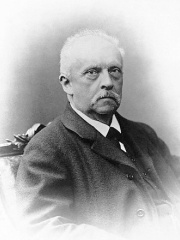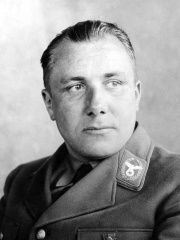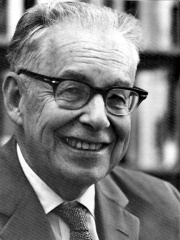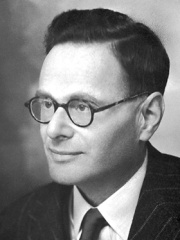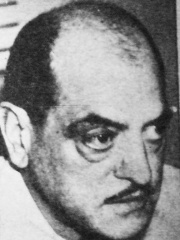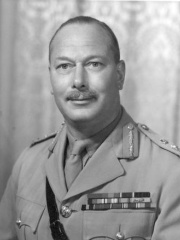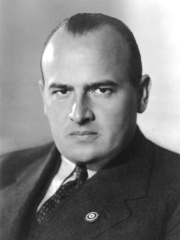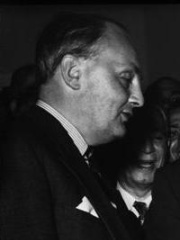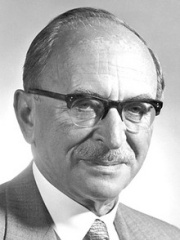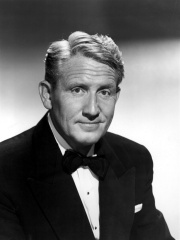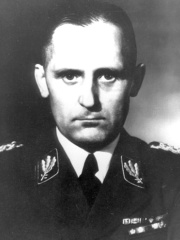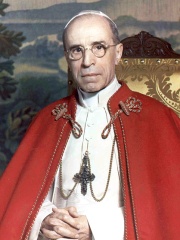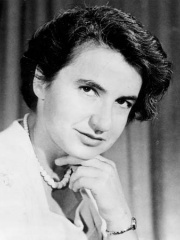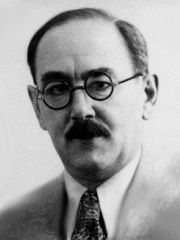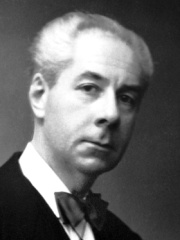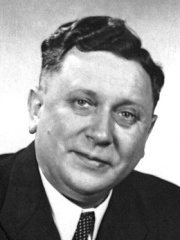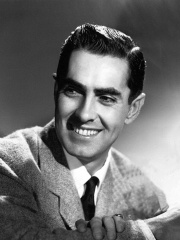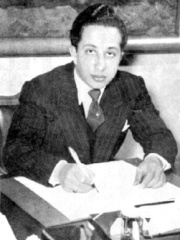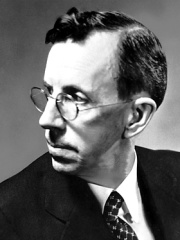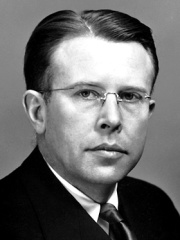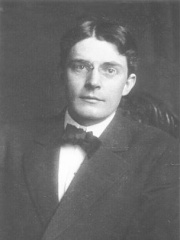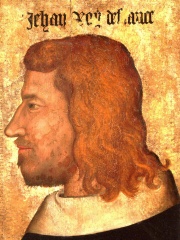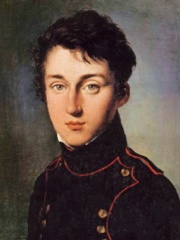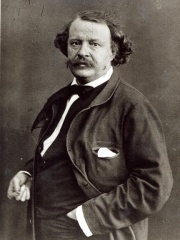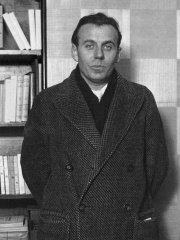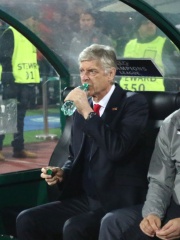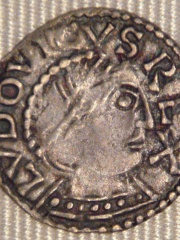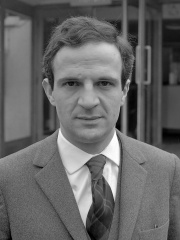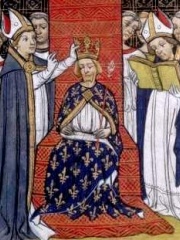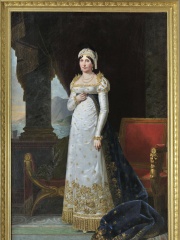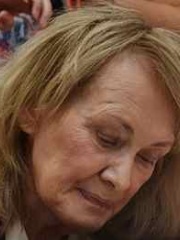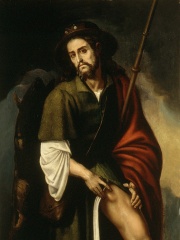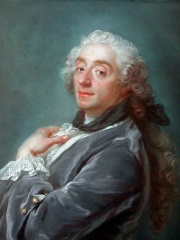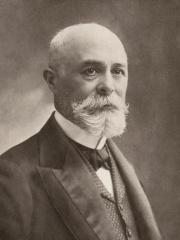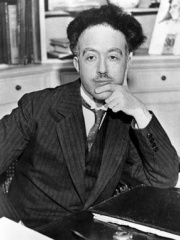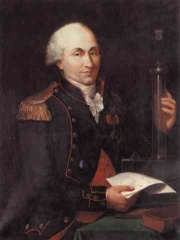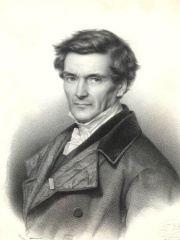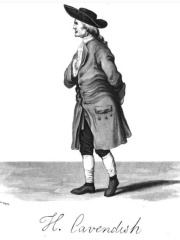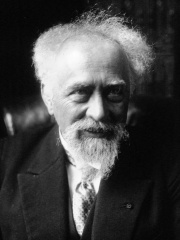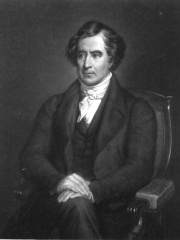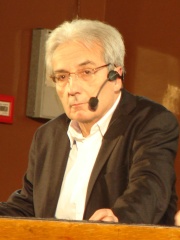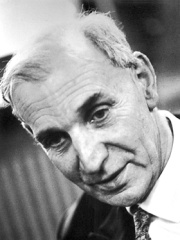PHYSICIST
Frédéric Joliot-Curie
1900 - 1958
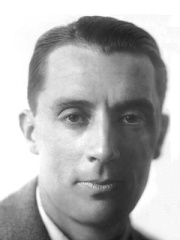
 Frédéric Joliot-Curie
Frédéric Joliot-Curie
Jean Frédéric Joliot-Curie (French: [fʁedeʁik ʒɔljo kyʁi]; né Joliot; 19 March 1900 – 14 August 1958) was a French chemist and physicist who received the 1935 Nobel Prize in Chemistry with his wife, Irène Joliot-Curie, for their discovery of induced radioactivity. They were the second married couple, after his parents-in-law, to win the Nobel Prize, adding to the Curie family legacy of five Nobel Prizes. Joliot-Curie and his wife also founded the Orsay Faculty of Sciences, part of the Paris-Saclay University. Read more on Wikipedia
His biography is available in 71 different languages on Wikipedia. Frédéric Joliot-Curie is the 72nd most popular physicist (down from 47th in 2024), the 259th most popular biography from France (down from 222nd in 2019) and the 9th most popular French Physicist.
Frédéric Joliot-Curie was a French nuclear physicist who, with his wife Irène Joliot-Curie, jointly won the Nobel Prize in Chemistry in 1935. He was most famous for his work on artificial radioactivity.
Memorability Metrics
Page views of Frédéric Joliot-Curie by language
Among PHYSICISTS
Among physicists, Frédéric Joliot-Curie ranks 72 out of 851. Before him are Charles Glover Barkla, Paul Dirac, Léon Foucault, Norman Foster Ramsey Jr., Philipp Lenard, and Lev Landau. After him are Ludwig Boltzmann, Max von Laue, Johannes Diderik van der Waals, Edward Teller, James Chadwick, and Hermann von Helmholtz.
Most Popular Physicists in Wikipedia
Go to all RankingsCharles Glover Barkla
1877 - 1944
HPI: 78.02
Rank: 66
Paul Dirac
1902 - 1984
HPI: 77.91
Rank: 67
Léon Foucault
1819 - 1868
HPI: 77.89
Rank: 68
Norman Foster Ramsey Jr.
1915 - 2011
HPI: 77.88
Rank: 69
Philipp Lenard
1862 - 1947
HPI: 77.85
Rank: 70
Lev Landau
1908 - 1968
HPI: 77.61
Rank: 71
Frédéric Joliot-Curie
1900 - 1958
HPI: 77.57
Rank: 72
Ludwig Boltzmann
1844 - 1906
HPI: 77.57
Rank: 73
Max von Laue
1879 - 1960
HPI: 77.54
Rank: 74
Johannes Diderik van der Waals
1837 - 1923
HPI: 77.51
Rank: 75
Edward Teller
1908 - 2003
HPI: 77.35
Rank: 76
James Chadwick
1891 - 1974
HPI: 77.34
Rank: 77
Hermann von Helmholtz
1821 - 1894
HPI: 77.32
Rank: 78
Contemporaries
Among people born in 1900, Frédéric Joliot-Curie ranks 12. Before him are Martin Bormann, Charles Francis Richter, Hans Adolf Krebs, Luis Buñuel, Wolfgang Pauli, and Prince Henry, Duke of Gloucester. After him are Hans-Georg Gadamer, Hans Frank, Gladwyn Jebb, Dennis Gabor, Spencer Tracy, and Heinrich Müller. Among people deceased in 1958, Frédéric Joliot-Curie ranks 6. Before him are Pope Pius XII, Rosalind Franklin, Wolfgang Pauli, Imre Nagy, and Roger Martin du Gard. After him are Kurt Alder, Tyrone Power, Faisal II of Iraq, Clinton Davisson, Ernest Lawrence, and John B. Watson.
Others Born in 1900
Go to all RankingsMartin Bormann
POLITICIAN
1900 - 1945
HPI: 80.75
Rank: 6
Charles Francis Richter
GEOLOGIST
1900 - 1985
HPI: 78.63
Rank: 7
Hans Adolf Krebs
CHEMIST
1900 - 1981
HPI: 78.34
Rank: 8
Luis Buñuel
FILM DIRECTOR
1900 - 1983
HPI: 78.28
Rank: 9
Wolfgang Pauli
PHYSICIST
1900 - 1958
HPI: 78.12
Rank: 10
Prince Henry, Duke of Gloucester
POLITICIAN
1900 - 1974
HPI: 77.58
Rank: 11
Frédéric Joliot-Curie
PHYSICIST
1900 - 1958
HPI: 77.57
Rank: 12
Hans-Georg Gadamer
PHILOSOPHER
1900 - 2002
HPI: 77.23
Rank: 13
Hans Frank
POLITICIAN
1900 - 1946
HPI: 76.65
Rank: 14
Gladwyn Jebb
POLITICIAN
1900 - 1996
HPI: 75.89
Rank: 15
Dennis Gabor
PHYSICIST
1900 - 1979
HPI: 75.48
Rank: 16
Spencer Tracy
ACTOR
1900 - 1967
HPI: 75.18
Rank: 17
Heinrich Müller
MILITARY PERSONNEL
1900 - 1945
HPI: 75.01
Rank: 18
Others Deceased in 1958
Go to all RankingsPope Pius XII
RELIGIOUS FIGURE
1876 - 1958
HPI: 87.71
Rank: 1
Rosalind Franklin
BIOLOGIST
1920 - 1958
HPI: 79.24
Rank: 2
Wolfgang Pauli
PHYSICIST
1900 - 1958
HPI: 78.12
Rank: 3
Imre Nagy
POLITICIAN
1896 - 1958
HPI: 77.93
Rank: 4
Roger Martin du Gard
WRITER
1881 - 1958
HPI: 77.76
Rank: 5
Frédéric Joliot-Curie
PHYSICIST
1900 - 1958
HPI: 77.57
Rank: 6
Kurt Alder
CHEMIST
1902 - 1958
HPI: 75.78
Rank: 7
Tyrone Power
ACTOR
1914 - 1958
HPI: 75.74
Rank: 8
Faisal II of Iraq
POLITICIAN
1935 - 1958
HPI: 75.71
Rank: 9
Clinton Davisson
PHYSICIST
1881 - 1958
HPI: 75.46
Rank: 10
Ernest Lawrence
PHYSICIST
1901 - 1958
HPI: 75.41
Rank: 11
John B. Watson
PSYCHOLOGIST
1878 - 1958
HPI: 75.34
Rank: 12
In France
Among people born in France, Frédéric Joliot-Curie ranks 259 out of 6,770. Before him are John II of France (1319), Nicolas Léonard Sadi Carnot (1796), Nadar (1820), Louis-Ferdinand Céline (1894), Arsène Wenger (1949), and Louis VI of France (1081). After him are François Truffaut (1932), Philip III of France (1245), Letizia Ramolino (1750), Annie Ernaux (1940), Saint Roch (1295), and François Boucher (1703).
Others born in France
Go to all RankingsJohn II of France
POLITICIAN
1319 - 1364
HPI: 77.68
Rank: 253
Nicolas Léonard Sadi Carnot
ENGINEER
1796 - 1832
HPI: 77.68
Rank: 254
Nadar
PHOTOGRAPHER
1820 - 1910
HPI: 77.63
Rank: 255
Louis-Ferdinand Céline
WRITER
1894 - 1961
HPI: 77.61
Rank: 256
Arsène Wenger
COACH
1949 - Present
HPI: 77.61
Rank: 257
Louis VI of France
POLITICIAN
1081 - 1137
HPI: 77.61
Rank: 258
Frédéric Joliot-Curie
PHYSICIST
1900 - 1958
HPI: 77.57
Rank: 259
François Truffaut
FILM DIRECTOR
1932 - 1984
HPI: 77.56
Rank: 260
Philip III of France
POLITICIAN
1245 - 1285
HPI: 77.56
Rank: 261
Letizia Ramolino
POLITICIAN
1750 - 1836
HPI: 77.55
Rank: 262
Annie Ernaux
WRITER
1940 - Present
HPI: 77.55
Rank: 263
Saint Roch
RELIGIOUS FIGURE
1295 - 1327
HPI: 77.52
Rank: 264
François Boucher
PAINTER
1703 - 1770
HPI: 77.52
Rank: 265
Among PHYSICISTS In France
Among physicists born in France, Frédéric Joliot-Curie ranks 9. Before him are Henri Becquerel (1852), Louis de Broglie (1892), Charles-Augustin de Coulomb (1736), Gaspard-Gustave de Coriolis (1792), Henry Cavendish (1731), and Léon Foucault (1819). After him are Jean Baptiste Perrin (1870), François Arago (1786), Albert Fert (1938), Alfred Kastler (1902), Hans Bethe (1906), and Benoît Paul Émile Clapeyron (1799).
Henri Becquerel
1852 - 1908
HPI: 84.07
Rank: 3
Louis de Broglie
1892 - 1987
HPI: 82.00
Rank: 4
Charles-Augustin de Coulomb
1736 - 1806
HPI: 80.87
Rank: 5
Gaspard-Gustave de Coriolis
1792 - 1843
HPI: 78.87
Rank: 6
Henry Cavendish
1731 - 1810
HPI: 78.35
Rank: 7
Léon Foucault
1819 - 1868
HPI: 77.89
Rank: 8
Frédéric Joliot-Curie
1900 - 1958
HPI: 77.57
Rank: 9
Jean Baptiste Perrin
1870 - 1942
HPI: 76.02
Rank: 10
François Arago
1786 - 1853
HPI: 75.09
Rank: 11
Albert Fert
1938 - Present
HPI: 74.95
Rank: 12
Alfred Kastler
1902 - 1984
HPI: 74.81
Rank: 13
Hans Bethe
1906 - 2005
HPI: 74.50
Rank: 14
Benoît Paul Émile Clapeyron
1799 - 1864
HPI: 74.08
Rank: 15
